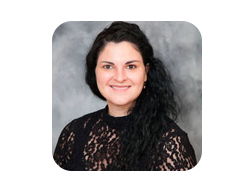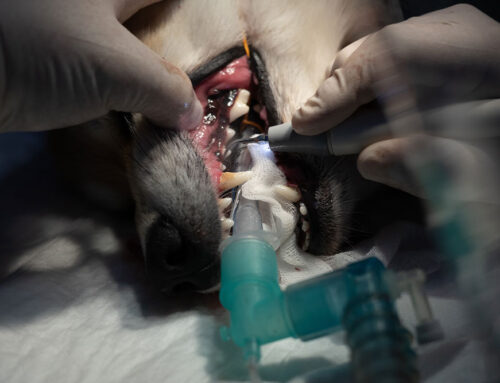General practice veterinarians often rely on clinical pathology specialists to help guide their clinical decisions. Pathologists help us understand complex chemistry results, glean minute details from a blood smear, identify the rarest of cancer cells under the microscope, and pull together various test results to help us form an accurate diagnosis for our patients.
Dr. Shannon Dehghanipir became a veterinary pathologist because as a student, she found learning about the discipline fascinating, and she enjoys being a crucial part of the behind-the-scenes diagnostic process. VESPECON is fortunate to have Dr. Dehghanipir on our consultant team, and we want you to get to know her. Here, we dive into the clinical pathology specialty and share some fun facts about her life away from the office.
Veterinary clinical pathology: A day in the life
Veterinary pathologists study disease etiology and pathogenesis in various animal species. Their work is crucial to daily veterinary operations, and their research helps advance our profession’s knowledge and understanding of animals’ disease and how that relates to human health. Some pathologists may also work in human or animal drug development.
These professionals largely spend their days in the laboratory, either processing client samples or participating in various research projects and studies. They may work for private laboratories, large universities, privately owned large specialty hospitals, zoos, or the government. Veterinary pathologists may also consult directly with primary veterinarians, provide second opinions, teach, participate in speaking engagements, and write research articles and reviews.
What conditions do veterinary clinical pathologists help diagnose?
A veterinary clinical pathologist focuses on solving clinical problems and helping primary veterinarians pull together various test results to make a definitive diagnosis. Veterinary clinical pathologists often help identify these conditions:
- Bacterial, fungal, and viral infections
- Vector-borne diseases
- Benign and malignant cancers, including tumor behavior
- Autoimmune and inflammatory diseases
- Genetic or hereditary disorders
- Organ and endocrine dysfunction
- Rare diseases
- Toxicities
Dr. Dehghanpir: Questions and answers
We talked with Dr. Dehghanpir about her background and why she chose to specialize in clinical pathology. Get to know Dr. Dehghanpir by reading her responses to our questions.
Question: Where did you complete your veterinary education?
Answer: I completed my DVM at Louisiana State University (LSU) in 2013, and a small animal rotating internship at the University of Pennsylvania in 2014. I completed my residency at LSU and became DACVP-board certified in 2017.
Q: Where are you from, and where do you currently live?
A: I am from New Orleans, Louisiana, and currently live in Baton Rouge, Louisiana.
Q: Why did you choose to pursue a veterinary specialty?
A: I liked the idea of immersing myself in one veterinary medicine discipline to understand the area fully. I enjoy all elements of clinical pathology: hematology, clinical chemistry, and cytology. In addition, I appreciate that our diagnoses guide cases behind-the-scenes.
Q: What do you enjoy most about clinical pathology?
A: Cytopathology is rapid and minimally invasive and often provides the diagnosis.
Q: What has been your most fulfilling or interesting case as a veterinary specialist?
A: Diagnosing the extremely rare GI basidiobolomycosis in a dog!
Q: How did you come to work with VESPECON?
A: Small animal surgical specialist Dr. Jude Bordelon, DVM, MS, DACVS-SA, reached out to introduce VESPECON to me. I appreciate VESPECON’s mission. In addition, VESPECON Founder and CEO Dr. Pierce, DVM, MS, DACVO, was one of my veterinary school professors.
Q: How do VESPECON’s clinical pathology consults benefit primary veterinarians?
A: Primary veterinarians rely on clinical pathology every day. Whether you need a refresher on blood smear evaluation, clinical chemistry interpretation, or review of cytology smears, I am here!
Q: Tell us about your two- and four-legged family members.
A: I have cats Luna, Leo, and Lincoln, and dog Arya.
Q: What do you like to do in your spare time?
A: I like to garden and cook Lebanese cuisine.
Q: Do you have any interesting hobbies or special talents?
A: I was a decent pianist throughout college. I’m trying to get back into it!
Q: What is the most interesting place you have traveled? Any specific destinations on your bucket list?
A: I have visited Japan and hope to visit Morocco one day.
Consult with Dr. Dehghanpir or any of our knowledgeable specialists through our VESPECON service. We use a virtual platform that helps you form personal connections with our team, and we’re available at your fingertips anytime you need us. Our services also include referrals to in-person specialists within our contracted network. To sign up to begin offering your patients enhanced care, contact us. For more information, visit our website.







Leave A Comment